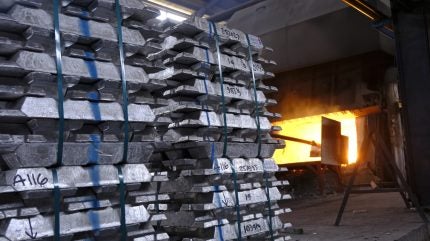
Mining companies are increasingly adopting sustainable strategies such as low-carbon smelting and recycling programmes to reduce their environmental impact and boost efficiency, according to a GlobalData report.
In turn, these innovations optimise resource use and lower operational costs by enhancing metal recovery and minimising waste.
The report, produced by Mining Technology’s parent company, suggests that despite initial high investment, ongoing technological advances are “steering the sector towards more sustainable mining practices”.
“Advanced smelting technologies enhance metal recovery and produce higher purity materials, allowing mining companies to maximise the value of their ore while minimising waste,” says Likith Togita, senior analyst of disruptive tech at GlobalData.
“Meanwhile, recycling programmes facilitate the recovery of metals from previously discarded materials, creating a more sustainable approach to resource management in the industry.”
The report points to the latest developments, deals and innovations in the mining industry. It also looks at low-carbon footprint mines and the circular economy in the sector.
Access the most comprehensive Company Profiles on the market, powered by GlobalData. Save hours of research. Gain competitive edge.

Your download email will arrive shortly
We are confident about the unique quality of our Company Profiles. However, we want you to make the most beneficial decision for your business, so we offer a free sample that you can download by submitting the below form
By GlobalData
According to GlobalData, Alcoa has announced plans to supply cable company Nexans with low-carbon aluminium rods produced using ELYSIS technology. This tech eliminates all direct greenhouse gas emissions from smelting and emits oxygen as a byproduct.
In April, Sumitomo Metal Mining also announced plans to establish recycling facilities at its Toyo smelter and refinery and the Niihama nickel refinery in Japan. Its aim is to recover copper, nickel, cobalt and lithium from used batteries and other materials.
Meanwhile, Rio Tinto has a $1.1bn investment plan to expand its AP60 aluminium smelter at Complexe Jonquière, Canada.
Togita concludes: “Advancements in smelting technologies reduce energy consumption and operational costs, while recycling initiatives reduce waste and decrease dependence on primary resource extraction, contributing to a more sustainable industry.
“Challenges like high initial investments and the need for skilled labour exist, but the ongoing innovations promise to enhance accessibility and drive the sector towards greater sustainability.”



